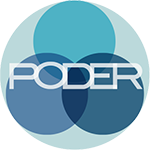PODER methodology for strategic research
How do we conduct research?
We consult first-hand information that companies provide to investors (stock markets, webpages, databases, specialized search engines) and information governments have on companies (available public information, information published in response to requests for information access). We also obtain information from leakers, through the Méxicoleaks, Perúleaks, Uruguay Leaks and QuiénEsQuién.wiki platforms; and we research other leak pages that offer information to the public.
Tools
These are the tools we develop:
Social cartography: visualization of detailed information on projects and on how populations affected by business activities inhabit and would like to inhabit their territory. We combine geo-referenced information with collaborative mapping.
Power maps: these maps visualize the target company and its interactions in terms of economic capacity, political alliances and/or dealings in inside information. They identify dynamics between corporations, political actors and stakeholders that might have a significant influence on territories and populations.
Vertical analysis: analyzes a company’s chain of ownership to identify connections and influences between management and ownership structures. It reveals hierarchies and levels of influence within a company or set of companies in a given industry, and exposes corporate alliances between one or more entities engaged in the same business segment.
Horizontal analysis: identifies types of clients, suppliers and other actors in the supply chain or value of a company or industry. It visualizes inflection points where economic actors intersect (companies, subcontractors, suppliers, workers). It also provides information on project exploration and/or exploitation processes.
Where do we obtain our information?
Open sources
Companies are obligated to provide information to their investors (who provide them with capital for their operations) and governments of the countries where they operate (because of legal requirements for obtaining permits). Additionally, we consult secondary sources like academics, journalists, researchers in civil society and others that draw on publicly-available data and analysis.
Human sources
There are people who work for companies or the government who have inside or protected information that would be in the public interest. Some of these directly share data and analysis about the business climate, and others, like informants or whistleblowers, make information available through anonymous leaks.
We consult first-hand information that companies provide to their investors (stock markets webpages, databases, financial search engines) and information that governments have on companies (publicly available information, information published in response to access-to-information filings). We also obtain information from leaked sources , through the Méxicoleaks, Perúleaks and QuiénEsQuién.wiki platforms. We also research other leak pages that offer information to the public.
If you need more information, contact us.
